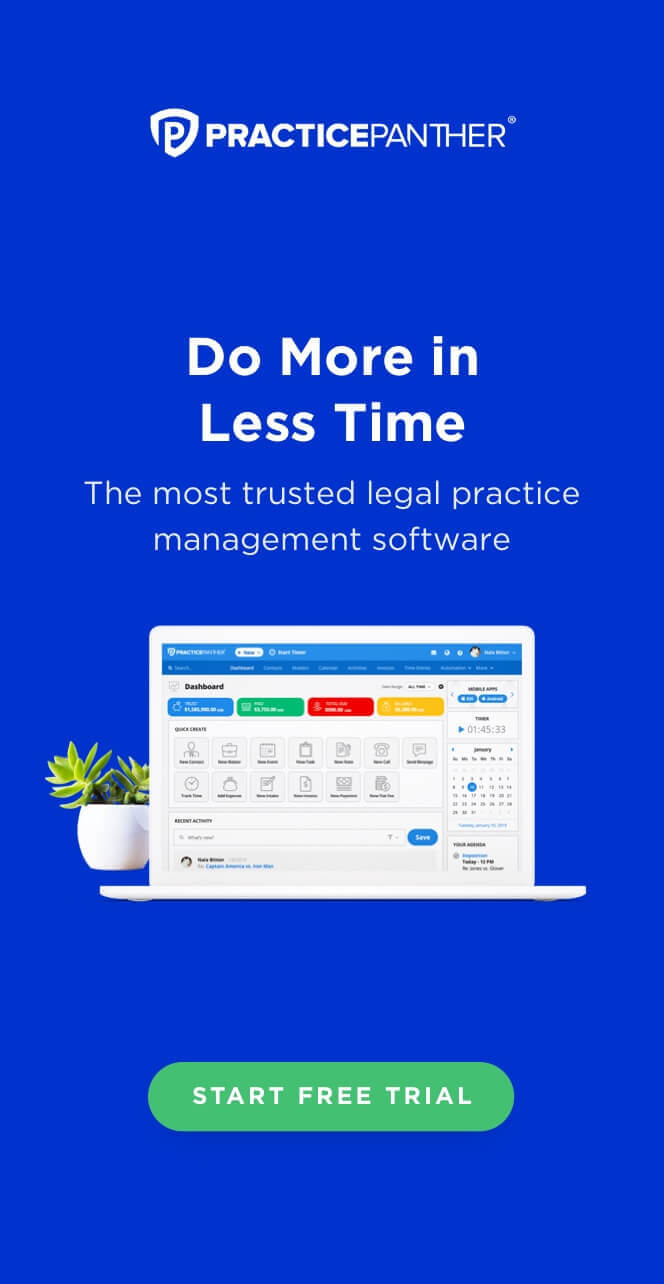Whether you’re a law school student, working at a prestigious law firm, or managing your legal practice, the significance of legal research cannot be overstated. It plays a pivotal role in helping you make well-informed decisions, construct persuasive arguments, and enrich your professional knowledge. Nonetheless, it’s widely acknowledged that legal research can be a time-consuming task, even for seasoned legal professionals. While many have streamlined their work by automating administrative tasks with the help of legal practice management software, legal research remains a manual process. To help enhance your proficiency in this important task, here are six tips to help you effectively conduct legal research.
What is Legal Research?
Legal research is the structured process of discovering answers to legal questions. It involves checking and understanding laws and court cases. This process includes identifying, collecting, and confirming the information and laws you need to make informed legal decisions.
During legal research, most attorneys refer to resources like legal reference books, in-depth law articles, and comprehensive legal journals. These resources serve as valuable tools for legal practitioners to navigate the complexities of the legal field and their specific cases.
Tips For Successful Legal Research
Define Your Research Goal and Stay Focused
Just like you would prepare for a court argument, it’s essential to plan your legal research ahead of time. Start by setting a clear goal for your research. Having a single objective in mind will help you stay focused and yield more favorable results.
In the sea of available information, it’s easy to get lost in every little detail when you’re just starting your research. Instead, keep your primary goal in mind and let it guide your analysis of cases, articles, and other materials. You can also create a concise mission statement to remind yourself of your intentions for this legal research.
Once you’ve established your research goal, dive into the case or cases that matter. Memorize or take notes of crucial case details, establish jurisdiction, and gain a deep understanding of the case’s context. This foundation will serve you well throughout the research process.
Organize Your Research
Once you’ve become well-acquainted with your case and have clarified the goals of your legal research, it’s time to ensure that your research process is structured and well-organized.
Among the most crucial steps you can take to optimize your research is keeping meticulous records. By documenting the sources you discovered, you will simplify the process of finding necessary sources when you start writing and explaining your research strategy.
There are various ways to log your legal research. You can either jot down your notes on paper manually or use legal practice management software like PracticePanther to consolidate your notes digitally and link all notes to the relevant client and case. Regardless of the method you choose to store your legal research notes, best research logging practices usually include recording the date, keywords, and the process used. Additionally, it’s important to note any required follow-ups for each source you encounter.
Choose the Right Search Terms
When using online databases or search engines for your research, leverage the insights and objectives you’ve identified in your initial analysis to craft a set of precise search terms and key phrases. For instance, if you’re researching Texas copyright law, your search query may revolve around keywords such as “copyright infringement” and “Texas law.” Using specific terms in your searches makes it easy for you to discover the most relevant results.
You can also refine your queries by using Boolean search terms. For example, if your search includes the keywords “copyright infringement” and “Texas law,” search engines will retrieve results containing either “copyright infringement” or “Texas law.” However, if you wish to narrow down to sources that contain both keywords, simply use a Boolean operator like “AND” between them. This instructs the search engine to provide results featuring the specified keywords. Using Booleans in this manner streamlines your search, helping you quickly locate the sources you need without sifting through irrelevant results.
Diversify Your Sources
In legal research, it’s beneficial to explore a variety of sources. Combine primary sources like case records and witness testimonies with secondary sources such as commentaries, dictionaries, and journals for a comprehensive understanding.
Even cases that lack the outcome you desire can provide helpful insights for your purposes. For example, a case that ended in a guilty verdict can still offer valuable examples and precedents to consider as you’re building a defense closing argument.
Additionally, finding one relevant source can naturally lead you toward many others. For example, let’s say you find one law review that’s filled with helpful information. The chances are that this article will provide a treasure of references to other similarly valuable resources. Legal databases can make this process even more accessible, as many platforms have built-in functionality that can direct users to related articles, headnotes, and other sources.
While it may be tempting to focus solely on the most recent sources, that shouldn’t always be your approach. Even cases from decades ago can bring vital details or set significant precedents that impact your current project, provided they haven’t been overturned or the law hasn’t evolved.
Fact-Check Your Research
While it’s essential to gather comprehensive information for your case, it’s equally important to fact-check your sources and assess their credibility. Understanding the origins of your sources can be invaluable to ensure your sources are up-to-date and accurate. Additionally, always be mindful of potential biases in your sources, as legal literature may reflect the author’s perspective. Striving for objectivity in your research is as important as finding accurate sources.
Moreover, another strategy is to seek guidance from experienced attorneys or legal researchers. They can offer insights, share effective research strategies, and recommend trustworthy resources to ensure your legal research is up to par.
Pace Whenever You Can, Wherever You Can
One undeniable reality every lawyer encounters in their career is that legal research rarely yields the correct answer on the first attempt. Research can be inherently time-consuming, and it can be easy to get sucked into an endless loop of churning through databases searching for the perfect statute, article, or case.
However, the best researchers know when to stop. As you research, remember to take a step back every so often to evaluate your progress. If you find yourself encountering the same sources time and again, or if you’ve made all the headway you can realistically accomplish given your project’s timeframe, then it may be time to take a break or move on to writing.
Achieve Accuracy and Efficiency in Legal Research with These Actionable Tips
While legal research may seem overwhelming, by approaching it with a clear plan, verifying your sources, recognizing biases, staying updated, and seeking guidance from experienced colleagues, you can empower yourself to overcome even the most challenging research-related tasks. With diligence, the right tools, and these actionable tips, you can navigate the complexities of legal research with confidence.
If you are interested in discovering how PracticePanther can enhance your legal research note-taking process, schedule a time with our team today. Learn how our platform can assist you in efficiently managing your legal research while simultaneously handling your cases.





